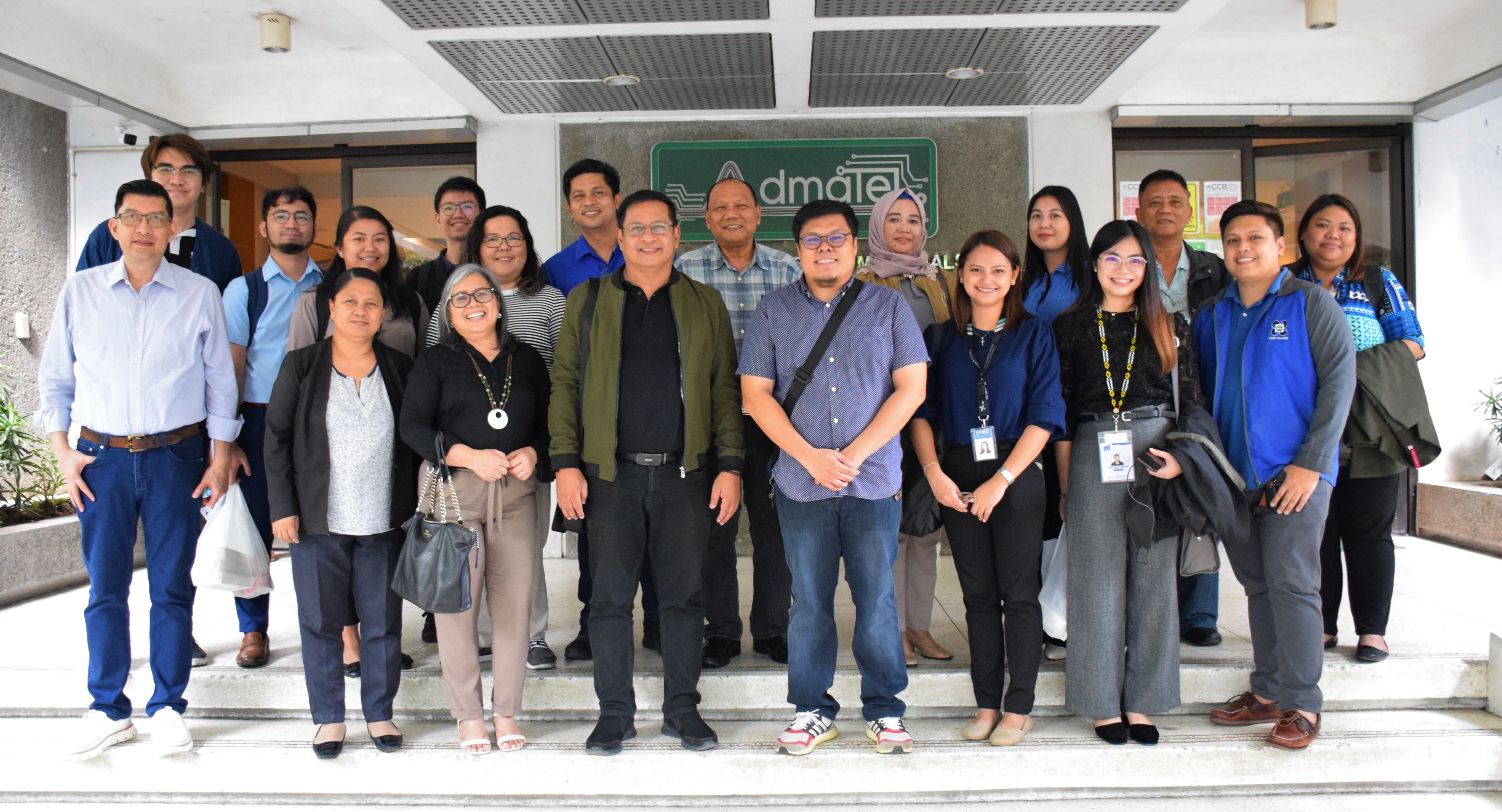The 31st Philippine Rubber (PHLRUBBER) Technical Working Group (TWG) Meeting was conducted to discuss issues and updates on initiatives in the local rubber industry.
The meeting was co-hosted by the Philippine Council for Agriculture, Aquatic and Natural Resources Research and Development of the Department of Science and Technology (DOST-PCAARRD) and the Philippine Council for Industry, Energy and Emerging Technology Research and Development (PCIEERRD) of DOST.
Held on October 17, 2023 at the training room of the Advanced Device and Materials Testing Laboratory (ADMATEL), DOST Compound in Bicutan, Taguig City, the meeting served as a venue for member-agencies, both government and private, to update and tackle the current issues and concerns of the rubber industry from the upstream to the downstream sectors.

Rubber industry players and stakeholders from all over the Philippines gather to discuss the ising occurrence of the disease, Pestalotiopsis, among other issues. (Image Credit: FERD, DOST-PCAARRD)
Since its inception in 2012, the PHLRUBBER TWG has been continuously supporting the rubber industry through science-based inputs, informed decisions, and strategic policies.
The meeting was headed by its newly appointed Chairperson, Mr. Gabriel Cornelio E. Igot and facilitated by the Department of Trade and Industry IX, led by Regional Executive Director Al-Zamir I. Lipae. Dr. Marcelino U. Siladan of the Forestry and Environment Research Division of DOST-PCAARRD delivered the welcoming remarks on behalf of DOST, as the host.
The Philippine Rubber Research Institute (DA-PRRI), represented by Ms. Elline T. Macay, presented the updates on the status and recent interventions against Pestalotiopsis, the fungal disease that is currently attacking vast areas of rubber plantations in Mindanao. PRRI reported that inputs such as fertilizers and fungicides have been provided to beneficiaries in Basilan, which is under a state of calamity due the widespread disease incidence.
DA-PRRI also shared the developments in the recently concluded International Rubber Workshop on Crop Management cum Technical Meeting 2023 in Davao City.
The workshop is a back-to-back activity with the 4th Association of Natural Rubber Producing Countries (ANRPC) technical committee meeting. The event was led by DA-PRRI through Executive Director Cheryl L. Eusala and supported by Dato’ Seri Dr. Abdul Aziz Kadir, the Secretary-General of the International Rubber Research and Development Board (IRRDB).
DOST-IX presented the latest updates in its rubber testing laboratory. Among the concerns raised is how to encourage more processors to have their products tested and how to improve connectivity of farmers to the laboratory. One of the solutions presented was to further lower the testing fee to attract more processors. This will be reconciled with the existing testing costs and requested for approval of DOST.
The Bureau of Philippine Standards of the Department of Trade and Industry (DTI-BPS), which serves as the National Standards Body (NSB) of the country, also presented their concerns on the need to develop standards for other rubber products in accordance with ASEAN practices.

PHLRUBBER TWG members take a tour of ADMATEL’s state-of-the-art equipment and facilities.
Before the end of the meeting, the participants toured the state-of-the-art equipment of the ADMATEL. It is a national testing facility that houses sophisticated and advanced analytical instruments for Failure Analysis (FA) and materials characterization managed by the Industrial Technology Development Institute (DOST-ITDI).
DOST-PCAARRD and DOST-PCIEERD, as members of the TWG, continue to push for projects and programs in aid of the rubber stakeholders as exemplified in their respective R&D agenda. DOST-PCAARRD provides R&D interventions in the upstream sector while DOST-PCIEERD focuses their efforts on the downstream sector. This is to ensure that R&D interventions are afforded to address the gaps and needs of rubber industry sectors across the value chain.

